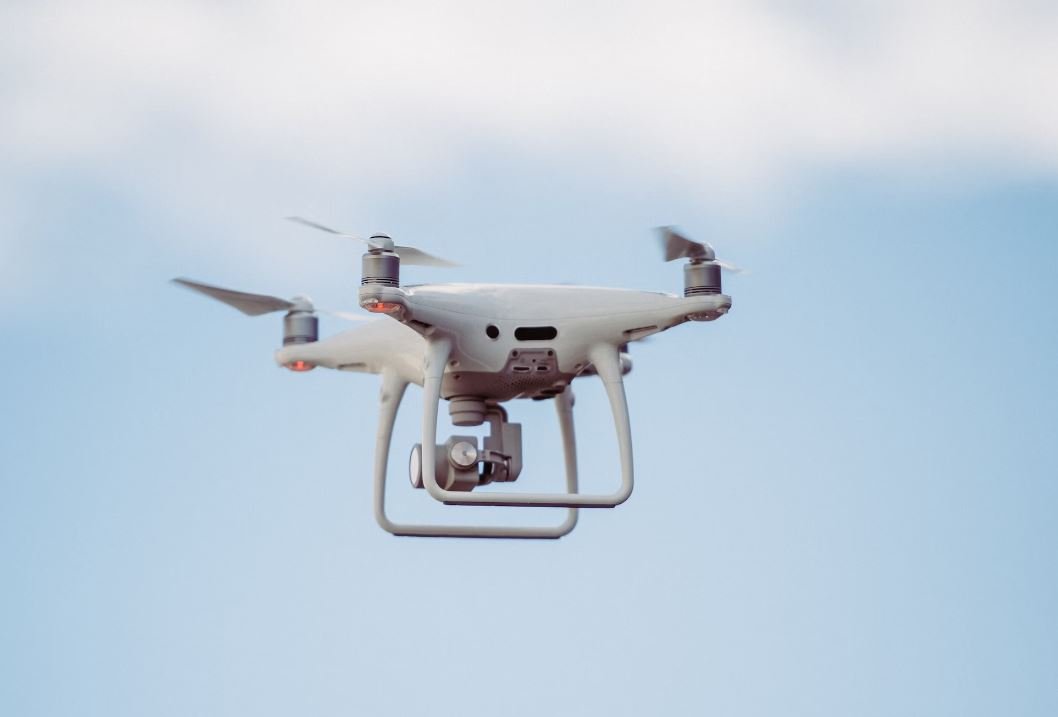AI in the Media Industry: Revolutionizing Content Creation and Consumption
The advent of artificial intelligence (AI) has not only transformed various industries but has also had a significant impact on the media industry. From personalized recommendations to automated content creation, AI technologies have revolutionized the way we consume and create content. In this article, we will explore the key applications of AI in the media industry and how it is reshaping the future of content.
Key Takeaways:
- AI is revolutionizing the media industry with automated content creation, personalized recommendations, and enhanced user experiences.
- Automated content creation using AI tools simplifies the production process, reduces costs, and enables the generation of high-quality content at scale.
- Personalized recommendations powered by AI algorithms improve user engagement, increase content consumption, and drive revenue through targeted advertising.
One of the most prominent ways AI is transforming the media industry is through automated content creation. AI tools, such as natural language processing (NLP) and machine learning, enable the generation of compelling content with minimal human intervention. *This technology not only simplifies the production process but also reduces costs associated with content creation and enables the generation of high-quality content at scale.* Automated content creation has found applications in journalism, data-driven storytelling, and even video production.
AI has also revolutionized the way consumers discover and consume content. Personalized recommendations, powered by AI algorithms, have become an integral part of streaming platforms, social media, and news aggregators. These algorithms leverage user data, preferences, and behavior to curate and recommend content tailored to individual interests. *This enhances user engagement, increases content consumption, and drives revenue through targeted advertising.* As AI continues to improve, personalized recommendations will become even more accurate and effective in catering to individual tastes.
Another application of AI in the media industry is automated video indexing and analysis. AI-powered systems extract valuable metadata from videos, such as objects, scenes, and emotions, enabling efficient categorization and searchability of video content. This technology is not only beneficial for content creators but also enhances user experiences by allowing them to find relevant videos quickly. *Imagine being able to search for specific moments in a video just like conducting a text-based search.* This innovation has wide-ranging implications for video sharing platforms, video surveillance, and video production workflows.
The Benefits of AI in the Media Industry
Utilizing AI in the media industry provides several benefits for both content creators and consumers:
- Efficient Content Creation: AI-powered tools simplify and accelerate content creation, reducing manual effort and production time.
- Enhanced User Experiences: Personalized recommendations and user-specific content cater to individual preferences, increasing user engagement and satisfaction.
- Improved Targeting: AI-powered audience segmentation and targeting enable advertisers to deliver personalized ads, enhancing advertising effectiveness and revenue generation.
| Benefit | Description |
|---|---|
| Efficient Content Creation | AI-powered tools simplify and accelerate the content creation process, reducing manual effort and production time. |
| Enhanced User Experiences | Personalized recommendations and user-specific content cater to individual preferences, increasing user engagement and satisfaction. |
| Improved Targeting | AI-powered audience segmentation and targeting enable advertisers to deliver personalized ads, enhancing advertising effectiveness and revenue generation. |
AI in the media industry is evolving at a rapid pace, bringing about new possibilities and challenges. As AI technologies continue to advance, it is crucial for media professionals to adapt and embrace these innovations to stay competitive in the ever-changing landscape. By capitalizing on the benefits of AI, content creators and consumers alike can expect a more personalized, efficient, and engaging media experience.
| Application | Description |
|---|---|
| Automated Content Creation | AI tools like NLP and machine learning enable automated generation of high-quality content at scale. |
| Personalized Recommendations | AI algorithms curate and recommend content tailored to individual interests, increasing user engagement and content consumption. |
| Automated Video Indexing and Analysis | AI-powered systems extract valuable metadata from videos, improving searchability and categorization of video content. |

Common Misconceptions
Misconception 1: AI in the media industry is taking jobs away from humans
Many people believe that the rise of AI in the media industry means that humans will no longer be needed. However, this is a common misconception. AI technology in the media industry is designed to enhance human creativity and productivity, not replace it.
- AI in media can automate repetitive tasks and allow humans to focus on more complex and creative work.
- AI tools can provide valuable insights and assist in decision-making but still require human judgment and interpretation.
- AI can enable the media industry to explore new opportunities and create more diverse content, resulting in increased job opportunities for humans.
Misconception 2: AI in the media industry is only useful for large companies
Another common misconception is that only large media companies can benefit from AI technology. However, AI has become increasingly accessible and affordable, allowing businesses of all sizes to leverage its capabilities.
- Small media companies can use AI tools to automate tasks and improve efficiency, helping them compete with larger competitors.
- AI-powered data analytics can provide valuable insights for targeted marketing and audience engagement, benefiting companies of all sizes.
- AI technology can be tailored to the specific needs and budget of smaller media companies, making it a viable and valuable investment.
Misconception 3: AI in the media industry is biased and lacks ethical considerations
There is a misconception that AI in the media industry is inherently biased and lacks ethical considerations. While AI systems can be vulnerable to biases, it is not an inherent flaw of AI technology itself.
- AI bias can be mitigated by improving training data and algorithms, ensuring equal representation and diverse perspectives.
- Ethical frameworks and guidelines can be implemented to govern the use of AI in the media industry, promoting fairness and accountability.
- There is active research and development in AI ethics, aiming to address biases and ethical concerns in AI systems.
Misconception 4: AI in the media industry is only used for content creation
Many people believe that AI in the media industry is solely focused on creating content. However, AI technology has applications beyond content creation.
- AI can be used to personalize user experiences, delivering targeted recommendations and enhancing user engagement.
- AI-powered algorithms can analyze audience behavior and preferences, helping media companies optimize content distribution and marketing strategies.
- AI chatbots and virtual assistants can improve customer support and engagement, enhancing the overall user experience.
Misconception 5: AI in the media industry is infallible and always accurate
There is a misconception that AI in the media industry is infallible and always accurate. However, like any technology, AI systems are not without limitations.
- AI models can make errors and require continuous monitoring and improvement to maintain accuracy.
- Human oversight is crucial to ensure that AI systems are making appropriate decisions and to mitigate potential biases.
- Transparency and explainability in AI systems can help identify and rectify inaccuracies, improving overall reliability.

How AI is Transforming the Media Industry
Artificial Intelligence (AI) has revolutionized countless industries, and the media industry is no exception. From personalized content recommendations to automated journalism, AI is reshaping the way news and entertainment are produced and consumed. This article explores some key features and advancements that AI has brought to the media industry.
1. AI-powered Chatbots Interacting with Viewers
Chatbots have become an integral part of media platforms, providing round-the-clock assistance to viewers. These AI-powered bots can answer queries, provide recommendations, and engage users in meaningful conversations, creating a more interactive and personalized media experience.
2. AI-generated Content Personalization
AI algorithms analyze user preferences, behavior, and demographic data to personalize content recommendations. By understanding viewers’ interests, AI ensures they are presented with the most relevant news articles, videos, and TV shows, leading to increased engagement and satisfaction.
3. AI-enhanced Video Editing
AI technologies have made video editing faster and more efficient. Video editing software now utilizes AI algorithms to automatically detect and remove shaky footage, enhance image quality, and even suggest suitable transitions, resulting in professional-quality videos with minimal effort.
4. AI in News Fact-checking
With the rise of “fake news,” AI systems are being developed to detect misinformation and verify the accuracy of news articles. These AI fact-checkers analyze and cross-reference information from various sources, helping journalists deliver reliable and trustworthy news content.
5. AI-driven Speech Recognition
Speech recognition algorithms, powered by AI, have greatly improved the accuracy of transcribing audio content. This technology makes it easier for journalists and content creators to convert interviews, podcasts, and other audio files into text, speeding up the content creation process.
6. AI-based Audience Analytics
Media companies are leveraging AI to gain valuable insights into their audiences. AI algorithms analyze user behavior, social media interactions, and viewership data to provide in-depth audience analytics. This data helps media organizations understand their audience preferences, optimize content strategies, and target specific demographics.
7. AI-generated Thumbnails and Title Recommendations
AI algorithms analyze the content of videos and articles to generate compelling thumbnails and catchy titles. These AI-generated recommendations help attract viewers’ attention, improve click-through rates, and optimize content distribution across various platforms.
8. AI-enabled Automated News Writing
AI is being used to automatically generate news articles from raw data and information. By analyzing structured data sources, such as financial reports or sports statistics, AI algorithms can generate well-written news articles in seconds, freeing up journalists’ time for more in-depth investigations and analysis.
9. AI-driven Video and Image Recognition
AI-powered video and image recognition technology enables media organizations to automatically tag, categorize, and search multimedia content. This technology streamlines content management, making it easier to find relevant visuals and analyze large databases of media assets.
10. AI-enhanced Virtual Reality (VR) and Augmented Reality (AR)
AI integration with VR and AR technologies enhances immersive media experiences. AI algorithms improve object recognition, real-time language translation, and predictive analytics, enabling engaging VR and AR applications for news reporting, storytelling, and entertainment.
As AI continues to evolve and grow in sophistication, the media industry stands to benefit immensely from its transformative capabilities. From delivering personalized content to automating time-consuming tasks, AI is shaping the future of media, facilitating improved audience engagement, and revolutionizing traditional media practices.
Frequently Asked Questions
AI in Media Industry
What is AI and how does it relate to the media industry?
How is AI being used in content creation?
How does AI improve video recommendation systems?




